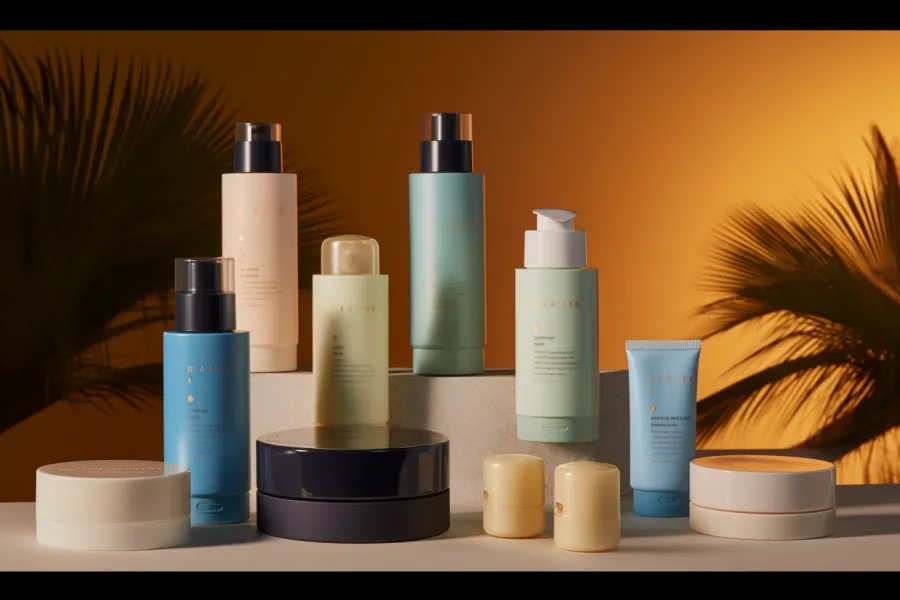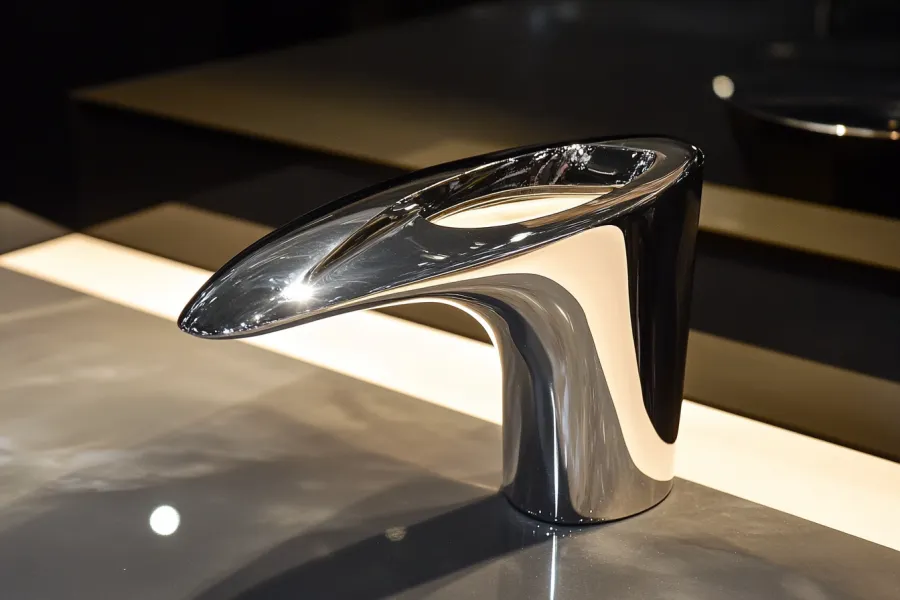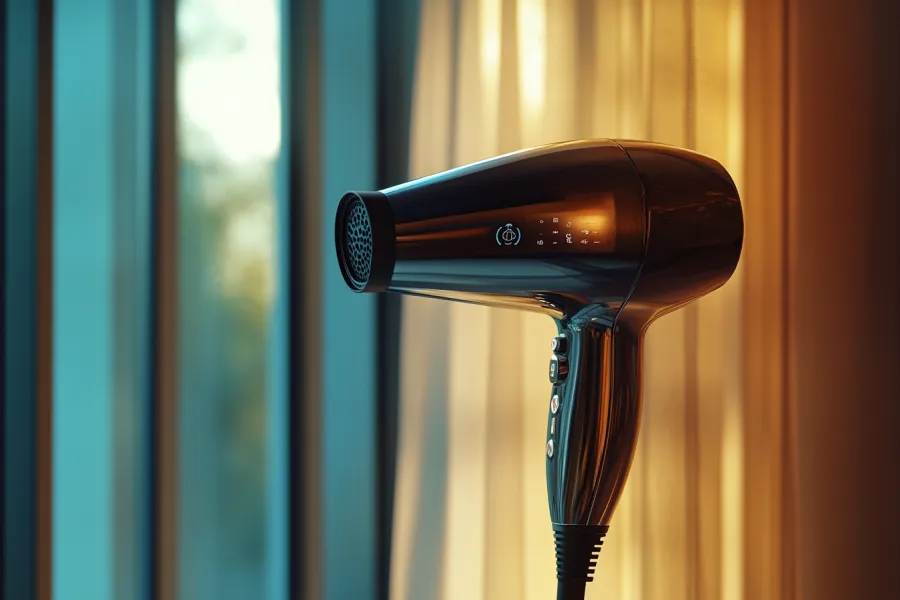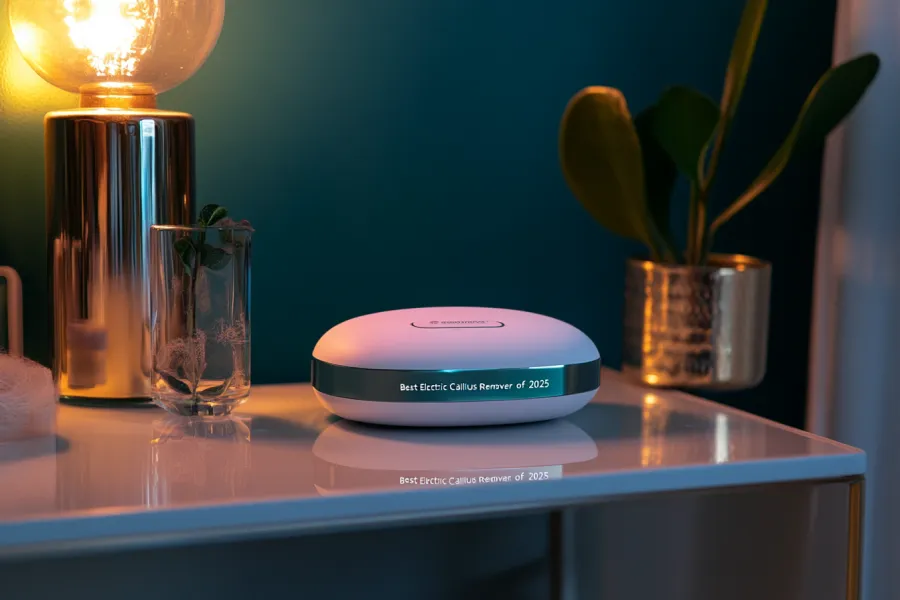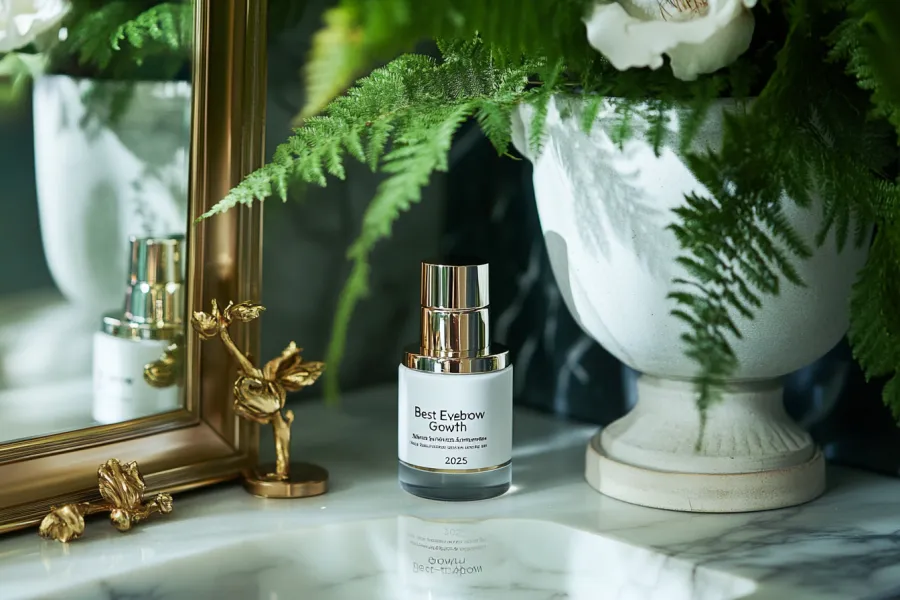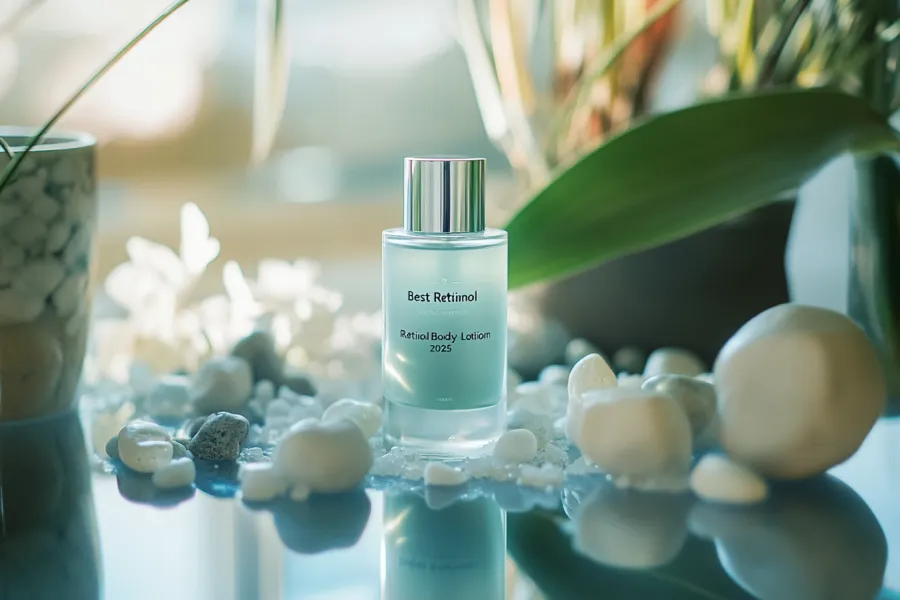Stuck in the dilemma of finding a facial sunscreen that doesn’t make your face ‘feel’ like it’s wearing sunscreen? Not anymore.
Our Top Picks
As your go-to skincare buddy, we understand the challenge of finding the perfect facial sunscreen. You want something that shields your skin from the sun’s harsh rays without leaving a greasy residue or that dreaded white cast. Don’t worry, we’ve got your back. We’ve delved into the science of UV protection and scoured countless user reviews to bring you the best options out there. We’ve carefully considered everything using the MECE principle (Mutually Exclusive, Collectively Exhaustive) to ensure a thorough and comprehensive guide. Whether you’re looking for a simple, no-fuss formula or a luxurious sunscreen that feels like a mini spa treatment, we’ve got something for everyone. So, sit back, relax, and let us guide you through the world of SPF and ingredients to find the facial sunscreens that truly live up to their promise.
1
Glo Skin Beauty Facial Sunscreen
If you’re on the hunt for the perfect facial sunscreen, let me introduce you to Glo Skin Beauty’s Oil Free SPF 40+. This sunscreen is a game-changer with its lightweight, invisible finish that offers stellar protection against sun damage and those pesky environmental stressors. It’s a breeze to apply and leaves zero greasy residue, making it ideal for everyday use—whether you’re wearing it under makeup or just on its own.
What really sets this sunscreen apart are its hydrating ingredients. Hyaluronic acid and allantoin team up to keep your skin moisturized and comfy all day long. Imagine feeling soft and smooth without any of that heavy, sticky feeling.
And there’s more. The formula is loaded with antioxidants to calm and strengthen your skin, helping to reduce irritation. Plus, it’s non-comedogenic, so it won’t clog your pores, which makes it perfect for all skin types.
With broad spectrum SPF 40+ protection, you can face the sun with confidence, knowing you’re shielded from harmful UVA and UVB rays. If you’re looking for reliable sun protection that also pampers your skin, this oil-free sunscreen is an excellent choice.
Oil-free formula
Broad Spectrum Protection
antioxidants soothe the skin
Might make skin shiny
Too hydrating for oily skins
2
TruSkin Naturals facial sunscreen
Looking for a sunscreen that has a more natural, mineral base? Meet TruSkin Mineral Face Sunscreen SPF 30. Unlike chemical sunscreens, this one uses reef-safe non-nano Zinc Oxide to give you natural, broad-spectrum protection. Say goodbye to sunburn and signs of aging like dark spots, fine lines, and wrinkles. Plus, it’s lightweight and non-greasy, making it perfect for sensitive skin.
One of the best things about this sunscreen is its ultra-nourishing formula packed with Vitamin C. This powerful ingredient adds an extra layer of antioxidant defense, brightening your skin and leaving it with a smooth, sheer satin finish.
But that’s not all. TruSkin’s sunscreen is enriched with hydrating Vegan Marine Collagen, Squalane, Cucumber, and Aloe. These ingredients work together to keep your skin soft, firm, and elastic, fighting off free radicals and boosting your skin’s health.
Proudly cruelty-free and made in the USA, TruSkin Mineral Face Sunscreen ensures top-notch quality and freshness. Plus, you can trust that each product is thoughtfully crafted with key antioxidants, super-nutrients, and nourishing botanicals, without any unnecessary additives or fragrances.
Mineral-based instead of chemical
Complete absorption leaving no white residue on skin
Reef-safe with non-nano Zinc Oxide
Bottle size is smaller than average
3
EltaMD UV Clear Face Sunscreen SPF 46
The best sunscreens for acne-prone skin often contain ingredients like Zinc Oxide to prevent flare-ups, and this sunscreen is just like that. If you struggle with rosacea, dermagraphism, and other skin conditions, this sunscreen will help keep your skin calm without causing any irritation. The silky texture glides on smoothly without feeling greasy which makes it perfect for everyday use. Its formula is ideal for people who struggle with sun sensitivity and need to protect their skin against damage, even when near windows.
SPF 46 with Zinc Oxide
Protects against breakouts
Prevents flare ups
Pump requires priming
4
La Roche-Posay Facial Sunscreen
Continuing our guide, fourth on the list is La Roche-Posay Anthelios UV Correct Sunscreen Moisturizer SPF 70. If you’re looking for a facial sunscreen that offers powerful protection and doubles as an anti-aging moisturizer, this one is a fantastic choice. This daily anti-aging face sunscreen lotion is designed for all skin tones and provides broad-spectrum sun protection with a lightweight, non-greasy, sheer finish.
One of the standout features of this facial sunscreen is its inclusion of Niacinamide, which helps to even out skin tone and reduce the appearance of fine lines. Plus, it’s oxybenzone-free, making it a safer choice for your skin.
Customers rave about how this sunscreen melts into the skin like lotion, leaving no noticeable smell and without causing breakouts, even for those prone to acne around the chin and mouth. It’s praised for its high SPF 70, providing superior protection compared to other sunscreens. The texture is more like a true serum lotion or emulsion, which users find to be comfortable, though not as light as some other brands like Nivea.
This sunscreen is perfect for daily use, whether you wear it alone or under makeup. It’s especially beneficial for sensitive skin, offering sun protection without irritation.
No noticeable smell and doesn’t cause breakouts
Suitable for all skin tones
Oxybenzone-free
A bit thicker than it used to be
5
EltaMD Facial Sunscreen
Next on our list is the EltaMD UV Clear Tinted Face Sunscreen, a top pick for those looking for a reliable facial sunscreen with a touch of color. This oil-free sunscreen with Zinc Oxide blends effortlessly into your skin, leaving no white cast behind. Perfect for oily skin, it can be worn alone or under makeup, making it a versatile addition to your skincare routine.
One of the standout features of this tinted sunscreen is its ability to protect against breakouts, making it essential for anyone with acne-prone skin. It’s also great for soothing sensitive skin types prone to acne, rosacea, and hyperpigmentation. The added tint helps to even out your skin tone, giving you a healthy glow without looking greasy. You’ll love the fact that it provides a natural finish, making your skin look better without feeling heavy. This travel-size pump bottle is convenient for on-the-go use, ensuring you have your daily face sunscreen wherever you go.
If you’re looking for perfect tint, healthy glow, and compatibility with makeup, especially in the summer, this facial sunscreen should be on your list.
Can be wore alone or under makeup
Provides a healthy glow without being greasy
Perfect blending
Not water resistant
6
La Roche-Posay Facial Sunscreen
Up next in our guide is the La Roche-Posay Anthelios Tinted SPF 50 Sunscreen & Toleriane Gentle Cleanser Travel Set. This duo is perfect if you’re looking for both facial sunscreen and gentle cleansing on the go. The tinted sunscreen features Titanium Dioxide and Niacinamide, offering broad-spectrum SPF 50 protection with a natural tint that blends seamlessly into your skin.
One of the standout features of this facial sunscreen is its water-resistant formula, protecting you for up to 40 minutes even during intense activities. It’s 100% mineral, oxybenzone-free, and fragrance-free, making it suitable for all skin types, including sensitive skin. The tint provides a natural, healthy glow without feeling heavy or greasy, and it’s perfect for everyday wear.
The travel-size bottle is a major bonus, allowing you to bring this sunscreen along on any trip without the need to switch bottles or products. It’s compact, convenient, and ensures you have top-notch sun protection wherever you go. The Toleriane Gentle Cleanser included in the set is equally impressive. It’s formulated to gently cleanse your skin without causing irritation, making it perfect for sensitive skin. It effectively removes dirt and impurities while maintaining your skin’s natural moisture balance.
Water-resistant
convenient for use in travelling
includes a cleanser for comprehensive skincare
The tinted sunscreen may require finding the right shade for your skin tone
7
EltaMD Facial Sunscreen
Seventh in our guide is the EltaMD UV Daily SPF 40 Tinted Face Sunscreen Moisturizer, a perfect solution if you have dry, combination, or normal skin. This facial sunscreen doesn’t just protect; it nourishes your skin with broad-spectrum SPF 40 and Zinc Oxide, guarding against both UVA and UVB rays.
One of the best aspects of this product is its ability to reduce wrinkles while deeply moisturizing your skin, thanks to the inclusion of Hyaluronic Acid. The formula is also fragrance-free, paraben-free, and noncomedogenic, ensuring it’s gentle and safe for everyday use.
This tinted facial sunscreen blends seamlessly into your skin, offering a natural, healthy glow without any white cast. It’s perfect for wearing alone or under makeup, making it a versatile choice for your daily routine. You’ll love its lightweight, non-greasy feel, which keeps the skin comfortable throughout the day. The travel-friendly size of this sunscreen is TSA approved, making it a convenient option for those quick getaways or simply carrying in your bag for daily use.
Deep moisturizer with Hyaluronic Acid
Decreases wrinkles
lightweight and thin
Price has went up a bit but the quality is nevertheless same
8
La Roche-Posay Anthelios Facial Sunscreen
If you’re in need of high SPF protection, La Roche-Posay Anthelios Melt-In Milk Sunscreen SPF 100 is just the right choice for your sensitive skin. This versatile sunscreen is perfect for both body and face, providing broad-spectrum SPF 100 coverage along with powerful antioxidants to protect your skin from harmful UVA and UVB rays.
What you’ll find most fascinating about this product is its melt-in milk formula, which absorbs quickly into the skin without leaving a greasy residue. It’s oil-free, fragrance-free, and allergy tested, making it suitable for both adults and children aged 3 and up. The high SPF is particularly beneficial for those with sun-sensitive skin, offering protection in a gentle, easy-to-apply lotion. The inclusion of Vitamin B5 (Panthenol) helps to soothe and moisturize your skin, enhancing overall skin health.
Oxybenzone-free quality in the sunscreen aligns perfectly with modern safety standards for sun protection. Its suitability for the entire family makes it a convenient choice for comprehensive sun care.
Melt-in milk formula absorbs quickly
Suitable for both face and body
Safe for adults and children aged 3 and up
Might not work for acne-prone skin
FAQ
Q: Is facial sunscreen Important?
A: Absolutely, facial sunscreen is incredibly important. Ultraviolet light (UVL) is a major risk factor for skin cancer and can also cause premature skin aging. These harmful UVL rays damage our skin cells, increasing the risk of developing skin cancer and accelerating the aging process. Using sunscreen daily is a critical step in protecting your skin from this damage. And it’s not just for sunny days—up to 80% of UVL rays can penetrate through clouds, so even on cloudy days, your skin is at risk. That’s why it’s so important to make sunscreen a part of your daily skincare routine. By doing so, you’re helping to protect your skin from harmful rays, reducing the risk of skin cancer, and keeping your skin looking younger and healthier for longer.
Q: Can I apply sunscreen without moisturizer?
A: Yes, you can apply sunscreen without moisturizer, but it’s not the best practice for long-term skin health. While sunscreens do offer some hydration, they might not provide enough on their own, especially for those with specific skin needs. For example, if you have acne-prone or oily skin, using sunscreen alone might lead to clogged pores. If you have dry skin, skipping moisturizer can leave your skin feeling parched and unhealthy over time. Experts recommend using both a moisturizer and sunscreen to ensure your skin stays protected and hydrated. Sunscreen alone doesn’t offer complete UV protection, so pairing it with other sun-protective products is beneficial. Additionally, remember to reapply sunscreen every two hours, or more frequently if you’re sweating or swimming, to maintain effective protection. So, while it’s okay to occasionally use sunscreen without moisturizer, integrating both into your routine will better support your skin’s health and protection.
Q: What is the difference between a physical and a chemical facial sunscreen?
A: Physical sunscreens and chemical sunscreens differ significantly in their composition and how they protect your skin. Physical sunscreens, also known as physical blockers, contain active ingredients like zinc oxide or titanium dioxide. These ingredients sit on the surface of your skin and act as a shield, deflecting the sun’s rays. This makes them an excellent choice for people with sensitive skin, though they can sometimes leave a white film on the skin. One of the main advantages of physical sunscreens is that they start working immediately upon application, so you don’t have to wait before going outdoors. They’re also generally more water-resistant, making them a great option if you plan on swimming or sweating.
On the other hand, chemical sunscreens contain ingredients like oxybenzone, octinoxate, octisalate, and avobenzone. These work by absorbing the sun’s rays and converting them into heat, which is then released from the skin. Chemical sunscreens tend to be easier to rub in and don’t leave a white residue, making them more aesthetically pleasing and often more commercially available. However, they can cause skin sensitivities, particularly for individuals with conditions like rosacea. If you experience a rash after using sunscreen, it might be due to a chemical formula. There have also been some concerns about the potential absorption of these chemicals into the body and their impact on the environment, but current research hasn’t found conclusive evidence to necessitate changes in general sunscreen recommendations.
Q: What does SPF number on sunscreens mean?
A: The SPF number on your sunscreen indicates how long the sun’s UV radiation would take to redden your skin when using the product as directed, compared to without any sunscreen. For example, with SPF 30, your skin would take 30 times longer to burn than if you weren’t wearing any sunscreen. SPF 30 allows about 3% of UVB rays to reach your skin, while SPF 50 permits around 2%. Although this might seem like a small difference, SPF 30 actually allows 50% more UV radiation to penetrate your skin compared to SPF 50. Under controlled conditions, like in a lab, higher SPF sunscreens with broad-spectrum protection offer more defense against sunburn, UVA damage, and DNA damage than lower SPF products. In real-world situations, however, high SPF sunscreens can give a false sense of security. Users might stay in the sun longer, skip reapplying, or neglect other protective measures like seeking shade, wearing hats, or covering up with clothing. This behavior can result in increased UV exposure and damage, counteracting the benefits of using sunscreen. For people with a high risk of skin cancer, genetic conditions like albinism or xeroderma pigmentosum, or certain immune disorders, even SPF 50 might not be sufficient. This is also true for activities like hiking or skiing at high altitudes or vacationing near the equator. The Skin Cancer Foundation advises using a water-resistant, broad-spectrum sunscreen with an SPF of 30 or higher for extended outdoor activities. Regardless of the SPF level, it’s important to apply one ounce (about two tablespoons) of sunscreen 30 minutes before going outside and to reapply every two hours, or immediately after swimming or sweating, to maintain effective protection.
Q: Is it better to use SPF 30 or 50?
A: The typical recommendation for daily SPF use is 30, according to the American Cancer Society, the American Academy of Dermatology, and Johns Hopkins Medicine. However, some organizations like the CDC, FDA, and Cleveland Clinic suggest SPF 15. If SPF 30 is the norm, why are there so many broad-spectrum sunscreens and skincare products, like moisturizers, face mists, and serums, formulated with SPF 50? Several factors may necessitate higher SPF. SPF 30 is generally adequate for daily use, but SPF 50 is preferable if you’re outside for more than an hour. This recommendation stems from the reality that most people don’t apply enough sunscreen to achieve the labeled SPF protection. Therefore, using SPF 50, even if applied partially, provides better protection than SPF 30 applied in the same manner. The American Academy of Dermatology (AAD) confirms that many people apply only 20 to 50 percent of the recommended sunscreen amount. Thus, opting for a higher SPF compensates for this under-application. For effective coverage, your face, neck, arms, and legs should get about one ounce of sunscreen, which equals roughly the size of your palm. If you’re focusing on just your face and neck, a half teaspoon is sufficient. If SPF 30 isn’t effective and you still experience sunburn, switching to SPF 50 is advisable. This applies to both face and body. Additionally, SPF 50 is recommended if you’re using medications or skincare products that increase photosensitivity. Remember, sunscreen is just one part of sun safety. Limiting sun exposure and reapplying sunscreen every two hours is essential for continuous protection. In summary, while SPF 30 is suitable for everyday use, SPF 50 is better for extended outdoor activities, sensitive skin, or when using products that increase photosensitivity. Proper application and reapplication are key to optimal protection.
Article Contributors
Ynet News Shopping Team
Ynetnews Shopping team provides authoritative advice and reviews, distinct from the editorial team, to inform your decisions. To guarantee the correctness of product sizes, availability, and prices, AI tools are utilized in the process.

